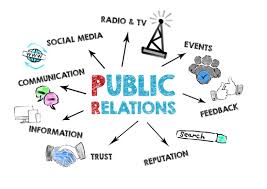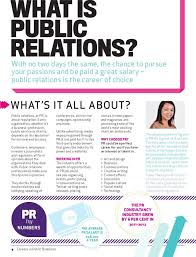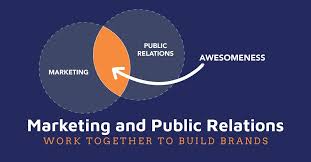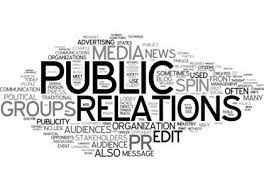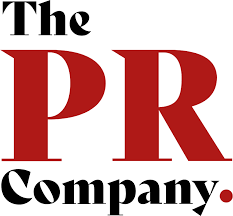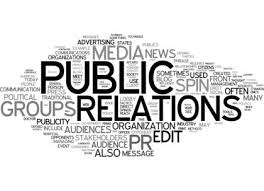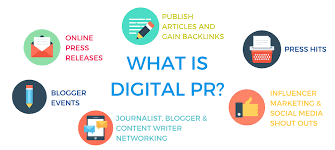Unlocking Success: The Power of Business PR Strategies
The Importance of Business PR in Building a Strong Brand
Public Relations (PR) plays a crucial role in shaping the image and reputation of a business. In today’s competitive market, effective PR strategies are essential for building and maintaining a strong brand presence.
Business PR involves managing communication between a company and its stakeholders, including customers, employees, investors, media, and the public. By effectively communicating key messages and stories, businesses can enhance their credibility, trustworthiness, and visibility in the market.
One of the key benefits of business PR is its ability to generate positive media coverage. Through press releases, media pitches, and relationship-building with journalists, businesses can secure valuable editorial placements that help increase brand awareness and reach new audiences.
Furthermore, business PR helps businesses manage their reputation during times of crisis. By proactively addressing issues and communicating transparently with stakeholders, businesses can mitigate potential damage to their brand and maintain trust with their audience.
Business PR also plays a vital role in building thought leadership within an industry. By positioning key executives as experts in their field through speaking engagements, bylined articles, and interviews, businesses can establish themselves as industry leaders and gain credibility among their peers.
In today’s digital age, online reputation management is another critical aspect of business PR. Monitoring social media channels, responding to customer feedback promptly, and engaging with online communities are essential for maintaining a positive brand image online.
In conclusion, business PR is an indispensable tool for building a strong brand in today’s competitive business landscape. By implementing effective PR strategies that align with business objectives and values, companies can enhance their reputation, increase brand visibility, and ultimately drive long-term success.
Top 5 Essential Tips for Effective Business Public Relations
- Maintain strong relationships with media contacts.
- Craft compelling and newsworthy press releases.
- Utilize social media platforms for PR outreach.
- Monitor and respond to online reviews and feedback promptly.
- Engage in community events and sponsorships for positive brand exposure.
Maintain strong relationships with media contacts.
Maintaining strong relationships with media contacts is a crucial tip in business PR. By nurturing these connections, businesses can enhance their chances of securing positive media coverage, gaining visibility, and reaching a wider audience. Building trust and rapport with journalists, editors, and influencers can lead to more opportunities for press mentions, interviews, and feature stories that can help boost brand reputation and credibility. Consistent communication and providing valuable insights or news updates to media contacts can strengthen these relationships over time, making them valuable allies in a company’s PR efforts.
Craft compelling and newsworthy press releases.
Crafting compelling and newsworthy press releases is a key tip in business PR. A well-written press release can capture the attention of journalists and media outlets, helping businesses to secure valuable media coverage and reach a wider audience. By focusing on creating engaging content that highlights the most important and relevant aspects of a company’s news or announcements, businesses can effectively convey their message and generate interest from the media and the public. Crafting press releases that are not only informative but also intriguing and impactful can significantly enhance a company’s brand visibility and reputation in the market.
Utilize social media platforms for PR outreach.
Utilizing social media platforms for PR outreach is a powerful strategy to connect with audiences on a more personal level and increase brand visibility. By leveraging the reach and engagement capabilities of platforms such as Facebook, Twitter, LinkedIn, and Instagram, businesses can share their key messages, engage with followers in real-time, and amplify their PR efforts to a wider audience. Social media also allows businesses to monitor conversations, gather feedback, and respond promptly to customer inquiries, further enhancing their reputation and credibility in the digital space. Effective use of social media for PR outreach can help businesses build meaningful relationships with their target audience and establish themselves as industry leaders in a competitive market.
Monitor and respond to online reviews and feedback promptly.
Monitoring and promptly responding to online reviews and feedback is a crucial aspect of business PR. In today’s digital age, online reputation management plays a significant role in shaping how a company is perceived by its customers and the public. By actively monitoring online reviews and feedback on platforms such as social media, review websites, and forums, businesses can address customer concerns, acknowledge positive feedback, and demonstrate their commitment to customer satisfaction. Timely responses show that the business values customer opinions and is dedicated to providing excellent service, ultimately helping to build trust and credibility with their audience.
Engage in community events and sponsorships for positive brand exposure.
Engaging in community events and sponsorships is a valuable tip in business PR to enhance brand exposure positively. By participating in local events and supporting community initiatives, businesses can showcase their commitment to the community, build relationships with local stakeholders, and create a positive association with their brand. Sponsorships offer opportunities for increased visibility, brand recognition, and goodwill among the target audience. This active involvement in community activities not only strengthens brand reputation but also fosters a sense of trust and loyalty among customers, ultimately contributing to long-term success and growth for the business.



